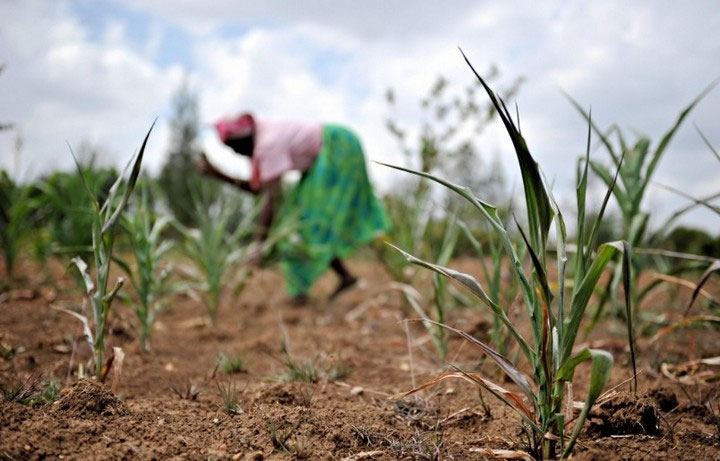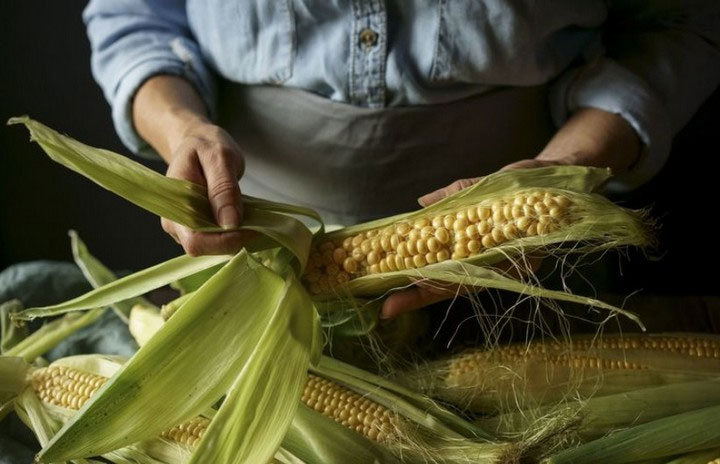Climate change will cause billions of people to be deficient in nutrients because of poor food
In the next 30 years, high levels of CO2 in the atmosphere can lead to human deficiency of important nutrients, especially protein, iron and zinc.
A recent study by international scientists is showing an alarming situation. In the next 30 years, climate change and high levels of CO2 in the atmosphere can lead to a lack of important nutrients.

Climate change can slow the pace of global nutritional improvement.
Scientists at the International Food Policy Research Institute (IFPRI) and co-author Timothy Sulser said: "The world has made a lot of progress in reducing malnutrition globally but the increase Global population over the next 30 years will require the world to increase its food production capacity to be able to provide adequate nutrients. New findings show that climate change can slow progress. Global nutritional improvement by reducing key nutrients in food ".
The impact of climate change will reduce protein, iron and zinc consumption per capita by 19.5%, 14.4% and 14.6%, respectively. Researchers have also taken into account important improvements in agriculture, but its effectiveness can hardly offset the effects of global warming.
In particular, the effects of climate change are not the same everywhere in the world. The group estimates impacts that will cover Southeast Asia, the Middle East, Africa, South Sahara, North Africa and Russia.
Robert Beach, senior economist and one of the study's authors, observed: "In general, people in low-income and middle-income countries take most of their nutrients from plant-based foods. But they are also more affected than animal food sources.
It is worth mentioning that these are also areas that are expected to have a large population growth rate and of course entail a huge demand for food.

Nutrient deficiencies also vary depending on the type of crop.
The impact of nutrient deficiency also varies depending on the type of crop, especially food crops . For example, the lack of nutrients from wheat. This is a food that accounts for a large proportion of the diet of many people around the world. Therefore any change in the amount of wheat in the world can affect the amount of nutrients a person receives.
Currently the research model is limited to 2050, but the Sulser said the situation may last until the end of the century. By that time, malnutrition would be even more terrible.
Sulser emphasizes: "Human diet and health are extremely complex and unpredictable. With the increasing amount of nutrients and climate change, it will make everything more complicated and influential. to efforts to reduce malnutrition in the world ".
The study has been published in the recent Lancet Planetary Health magazine.
- America pays money to save climate conferences
- Climate change seriously affects the poor
- Poor nutrient food due to global warming
- Dangerous climate change like HIV / AIDS
- By 2050, climate change will cause half a million people to die from starvation
- What is Climate Change?
- Climate change affects food supply
- Marching for climate change around the world
- This is how Dubai copes with climate change
- Climate change increases toxins in food
- America: Climate change will make corn prices unstable
- How does nutrients change when food is cooked?
 Is the magnetic North Pole shift dangerous to humanity?
Is the magnetic North Pole shift dangerous to humanity? Washington legalizes the recycling of human bodies into fertilizer
Washington legalizes the recycling of human bodies into fertilizer Lightning stone - the mysterious guest
Lightning stone - the mysterious guest Stunned by the mysterious sunset, strange appearance
Stunned by the mysterious sunset, strange appearance